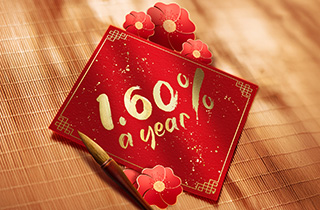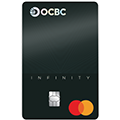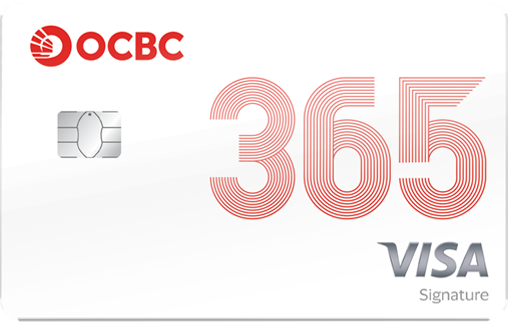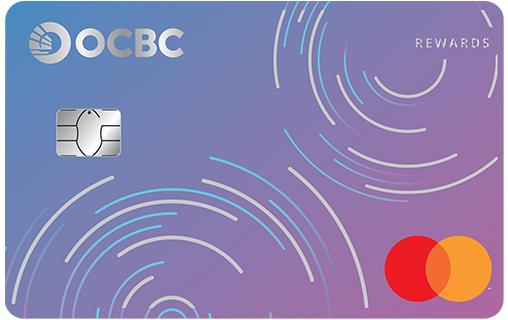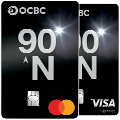Investing early and regularly is the key
Investing early and regularly is the key
The plan for retirement is not about what you invest in. It’s how you invest.
Ms. Tan Siew Lee, OCBC’s wealth management head, believes that staying invested for the long term gives more mileage over time. Hear from our resident expert on her best and worst bets, and her beliefs in making investments.
Start early, invest regularly and think long term.
That is the game plan bank executive Tan Siew Lee has set out for herself. Ms. Tan, 47, says: “I believe in staying invested in the market instead of trying to time the market and investing large sums at one go. I believe investing in this way will give you more mileage over time, rather than just putting your money into a savings or current account.”
That notion led Ms. Tan to set up plans allowing her to automatically invest money each month. Her personal approach mirrors much of what she does in her job, which involves overseeing the development of wealth products, ranging from deposits to unit trusts and treasury options. She is also in charge of wealth advisory strategy and processes for advisers, financial consultants and customers.
Ms. Tan, who is married with no children, holds a bachelor’s degree in business from Nanyang Technological University and a Master of Science in wealth management from the Singapore Management University. She started her career in a local bank as a deposits product manager.
Q: What is your approach to investing?
A: I believe that before planning for other goals such as your children’s education or retirement, you should have adequate insurance coverage. Invest only within your means, and only when you have set aside emergency cash (ideally, six to 12 times your monthly expenses). Thereafter, plan for your retirement before you see if you have spare money to invest for other capital gains.
Having a background as a product manager where due diligence is foremost, I must say that at a basic level, it is important for any investor to fully understand the features of a product before buying it. It’s always important to go in with your eyes open.
Q: What’s in your portfolio?
A: My core investments are in funds and equities. Our home is a freehold condominium we bought in 2010. We’re still servicing the loan for the property, which is about 1,000 sq ft. My portfolio has 50 per cent allocated to property, and 50 per cent in investments with a majority in shares and unit trusts.
Q: How did you get interested in investing?
A: I bought my first insurance product from a friend, in my first year of my first job, just to support him. It offered coverage of only $50,000. When I grew older, I realised I needed to increase my coverage to ensure that my immediate family would be well protected financially should anything happen to me.
When I joined OCBC in 2005, I gained more exposure to the financial markets, which further piqued my interest in investing. Savvy colleagues and mentors inculcated in me a curiosity and knowledge I did not have before.
I began by investing some of my Central Provident Fund money in equity and bond funds. I moved on to putting cash into these funds about a year later. As I was earning a little more than before, I decided I would put my spare cash into funds monthly.
My first foray into investing was buying the LionGlobal Singapore Balanced Fund, which I saw as a quick way to gain exposure to a portfolio of Singapore stocks. I expanded my portfolio with positions in the First State Dividend Advantage and First State Bridge funds, which are primarily Asia-focused.
To diversify my geographical exposure, I increased my European equities exposure via the BlackRock European Equity Income Fund. To improve the asset class mix of my portfolio, I invested in high-yield bond funds primarily invested in China and emerging markets.
Within the high-yield, fixed-income space, I prefer to take exposure via diversified bond funds to minimise single-issuer risks. On a portfolio basis, I am invested in global, Asia, equity, bond and multi-asset funds as well.
Despite shake-ups in the market such as the global financial crisis in 2008 and 2009, my portfolio has still grown in value, clocking about 4 per cent to 5 per cent in annualised returns.
Q: What are your immediate investment plans?
A: My financial plan consists of a variety of insurance policies. I have been investing regularly, such as in the Blue Chip Investment Plan at OCBC. This is something I helped develop in 2013 that enables customers to buy Singapore blue chips from just $100. I selected bank stocks to invest in.
Given the volatile market, I am also phasing my investments into high-conviction stocks with resilient business models and earnings visibility that I believe will be able to ride out the current challenging macro environment. I like cash-rich e-commerce and tech players as well as real estate investment trusts with access to strong sponsors and limited exposure to the retail business.
Q: How are you planning for retirement?
A: I follow this philosophy: The plan for retirement is not about what you invest in. It’s how you invest. You don’t have to put all your cash into investments, but you have to invest some, taking the appropriate risk.
Very importantly, I was lucky to start early, which is something I tell people when they ask me for investment advice. Based on my calculations, I will need about $2 million to retire comfortably at 62. I admit that perhaps only people with no kids can relate to that. Let banks or advisers help you. It all depends on how much risk you want to take, and on your financial circumstances.
My husband and I want to retire with $10,000 a month, which should be sufficient to cover our expenses and give us enough for a few trips a year.
Q: Any anecdotes on money lessons from childhood?
A: I come from a humble background. We were not well-to-do, but we always got by. We also saved where we could. My mother was a housewife and my father ran a small business. My dad has passed on. My parents’ main goal, like that of other baby boomers, was to make money to provide for their children (my elder sister and myself) and set us up for better lives.
In general, the way we lived taught me not to spend beyond my means. I remember my mother giving me 30 cents for pocket money in primary school. We ate at home a lot, and going out to the hawker centre was a treat. The few times we did go out are etched in my memory. We did not go on family trips. So today, when I see something I cannot afford, I do not buy it.
Best and worst bets
Q: What was your biggest investment mistake?
A: It was missed opportunities. In hindsight, during the global financial crisis, I should have bought into more equities and unit trust funds. However, I was too wrapped up in work at the time and did not take the time to do so. If I had invested in the MSCI All Country World Index at its trough in 2009, I would have enjoyed a price return of about 180 per cent from 2009 to April 27 this year.
Beyond missed opportunities in investing at the lows of the financial crisis, I am pretty much satisfied with my current portfolio of unit trusts and equities. They have provided fairly decent returns through the years. I learnt that to avoid missing out on investment opportunities due to busy schedules, it makes sense to invest on a regular basis and to allow the investment to run in “autopilot” mode (automatic fund transfers to an investment, like a unit trust, for example), or to farm out the investment responsibilities to professional asset managers via unit trusts.
Q: What has been your best investment?
A: It has been the Blue Chip Investment Plan by OCBC Bank. I wanted a plan that could run on autopilot. With that plan, you just need to make a one-time effort to sit down and set up the plan. After that, it runs on autopilot. The caveat here is there must be exposure to quality assets and you must understand the risk involved in investing. This is key.
Marriage of digital and wealth, the next frontier.
While her area of banking is very much a people-centric one, Ms. Tan says technology will play a greater role in money management.
“I think the marriage of digital and wealth will be the next frontier in the way we deliver wealth products and services to enable customers to achieve their financial goals.”
One example of this is OCBC’s mobile banking app that lets customers stay updated on investment matters and key movements in the markets.
It also lets customers buy products like unit trusts and Singapore Savings Bonds, make term deposits and sign up for the bank’s Blue Chip Investment Plan on the go. But Ms. Tan says that people may still need the guidance of financial advisers for more complex products or longer-term endowment plans, for instance.
Source: The Straits Times ©️ Singapore Press Holdings Limited. Permission required for reproduction
Grow your wealth with OCBC today
Disclaimers
The information provided herein is intended for general circulation and/or discussion purposes only. It does not take into account the specific investment objectives, financial situation or particular needs of any particular person. Please seek advice from a financial adviser regarding the suitability of any investment product taking into account your specific investment objectives, financial situation or particular needs before you make a commitment to purchase the investment product. In the event that you choose not to seek advice from a financial adviser, you should consider whether the product in question is suitable for you. The Bank, its related companies, their respective directors and/or employees (collectively “Related Persons”) may or might have in the future interests in the investment products or the issuers mentioned herein. Such interests include effecting transactions in such investment products, and providing broking, investment banking and other financial services to such issuers. The Bank and its Related Persons may also be related to, and receive fees from, providers of such investment products. A copy of the prospectus of each fund is available and may be obtained from the relevant fund manager or any of its approved distributors. Potential investors should read the prospectus for details on the relevant fund before deciding whether to subscribe for, or purchase units in the fund. The value of the units in the funds and the income accruing to the units, if any, may fall or rise. Please refer to the prospectus of the relevant fund for the name of the fund manager and the investment objectives of the fund. Any reference to a company, financial product or asset class is used for illustrative purposes and does not represent our recommendation in any way. Investments are subject to investment risks, including the possible loss of the principal amount invested. Past performance figures, predictions or projections are not necessarily indicative of future or likely performance. No representation or warranty whatsoever (including without limitation any representation or warranty as to accuracy, usefulness, adequacy, timeliness or completeness) in respect of any information (including without limitation any statement, figures, opinion, view or estimate) provided herein is given by OCBC Bank and it should not be relied upon as such. OCBC Bank does not undertake an obligation to update the information or to correct any inaccuracy that may become apparent at a later time. All information presented is subject to change without notice. OCBC Bank shall not be responsible or liable for any loss or damage whatsoever arising directly or indirectly howsoever in connection with or as a result of any person acting on any information provided herein.

